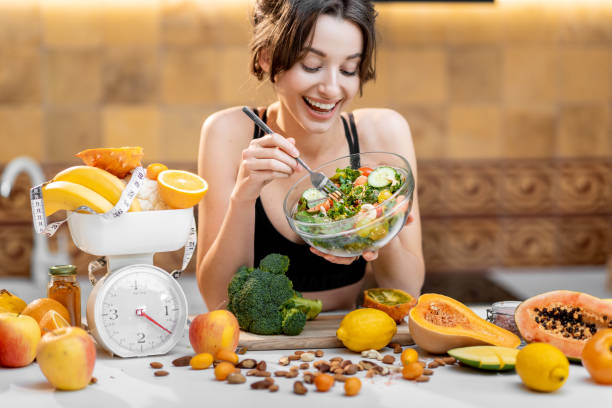Minerals and vitamins are essential for our body to work correctly. Vitamins C, D, A, and B are crucial vitamins for our body. They all perform different functions, and deficiencies can cause mild or severe illnesses. The presence or absence of this essential Vitamin can affect the body’s most important functions, including immunity, eye, skin health, and mental health. These vitamins come primarily from animal and plant sources. A balanced diet only contains enough vitamins, minerals, fats, protein, and carbohydrates.
What is Vitamin A?
Vitamin A is an essential vitamin for the body. It is fat-soluble and stored in the liver. You can quickly meet your daily vitamin requirements by eating various non-vegetarian and vegetarian foods. Preformed Vitamin A, also called retinol, can be used directly by the human body. THE BODY CONVERTS Provitamin A, also known as carotenoids, into retinol after consumption. Retinol is found in dairy products and poultry, such as eggs (milk), chicken, and milk. Carotenoids can be found in fruits and vegetables. The daily or required vitamin A diet differs depending on a person’s age. RDAs are also prescribed to pregnant women and lactating mothers.
Uses of Vitamin A and its Benefits
According to the 2009 global database of Vitamin A Deficiency by the World Health Organisation, despite the abundance of Vitamin A-rich foods available, one-third of children worldwide under five suffer from a deficiency. A deficiency of vitamin A has been linked to blindness in children, especially in South East Asia and Africa, according to a report from the National Institutes of Health. Many scientific studies have shown the benefits of adequate vitamin A in your daily diet.
Vitamin A has many vital functions and benefits.
Eye Health
Vitamin A maintains eye health by converting light into electrical signals, which our brains can interpret. Vitamin A is also a component in the pigment rhodopsin in the eye’s retina. It is photosensitive.
Improved Immunity
Vitamin A is essential for the body to function correctly. It is necessary for the maintenance of mucous membranes in the eyes and genital area, as well as the development of white cells to fight infections.
Fights Acne
Acne involves a severe outbreak of painful pimples that can leave scars. Vitamin A has been said to help prevent acne.
Healthy Bones
Vitamin A is also essential for bone health. A deficiency in this Vitamin has been associated with poor health. Some studies show that those with low Vitamin A levels in their blood are more susceptible to fractures.
Reproductive health
Vitamin A is vital in maintaining reproductive health for both men and women, especially women. It is essential to ensure the growth and development of embryos during pregnancy. The lack of vitamin A in the diet of pregnant women has been linked to congenital disabilities.
Best Dietary Sources Of Vitamin A
Here are some of the best sources of Vitamin A1 (or retinol, Performed Vitamin A).
Cod Liver Oil
According to USDA data, cod-liver oil is one of the best sources of retinol. It is often consumed as a supplement and contains 2000% of the Daily Value.
Goat Cheese
This low-calorie, high-vitamin A cheese is also delicious. It contains 29 percent of the DV, according to USDA data.
Liver
The livers of mammals, such as cows, lambs, pigs, etc., are rich in retinol. They are extremely rich in retinol and can be eaten as part of non-vegetarian food to meet vitamin requirements.
Blue Cheese
Blue cheese is another healthy cheese that contains Vitamin A1 in high amounts. It also includes 15% of the DV, according to USDA data.
The best sources of Provitamin A or carotenoids are:
Carrots
According to USDA data, carrots are popular with health nuts because of their nutrient richness—vitamin A accounts for 104 percent of the DV.
Spinach
The USDA reports that this low-calorie vegetable is rich in Provitamin A (carotenoids) and contains 52 percent of beta-carotene, a type of carotenoid.
Sweet Potato
The USDA reports that this food is also a good source of carotenoids, with 283 percent of the DV.
Papaya
It is rich in Provitamin, which helps to maintain liver and eye health. According to USDA data, it contains 274 micrograms of beta-carotene.
Mango
Mango, the king of fruits, is also a great source of Provitamin A. According to USDA data, the delicious fruit contains 21% of the Daily Value (DV) for Vitamin A.

